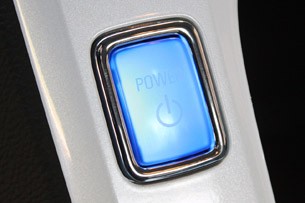Opinion: Chevrolet Volt debates leave out that whole “Vision Thing”


But what all the debates leave out is the discussion about GM’s right to take a leadership position on a new way to drive, and the unknown number of consumers who may also want to take a leadership position in their neighborhoods and workplaces.
I know it sounds corny, but Volt buyers are going to push the envelope to prove to themselves and their friends that electric driving is feasible. They will charge up overnight when electricity is cheapest. They will seek out places to recharge at work, the mall, parking lots. They will likely show loyalty to retailers that offer, for public relations benefits, a place to plug a car in while customers shop.
Early adopters of the Chevy Volt will undoubtedly try to maximize their electric driving, though they will do so without range anxiety (the fear of running out of juice). They will post to their Facebook pages, talk about it at neighborhood parties and backyard barbecues the way people have talked about their all-wheel-drive experiences plowing through snowstorms in their Subaru.
As the owner of a Volkswagen Jetta TDI, I can attest that I can find myself being a walking explainer and ambassador for clean diesel. “But you can’t find it everywhere, right?” Argh. Of course, you can, I say. I have never run out of fuel, and I never will. I feel sorry for Volt buyers who will be full-time explainers for the foreseeable future. But that’s what they signed up for.

Now, the discussion is about extended-range electrics. Soon, discussion about the feasibility of natural gas vehicles will heat up, I predict. Replacing 3.5 million medium and heavy vehicles with natural gas vehicles by 2035 would keep the U.S. from importing about 1.2 million barrels of day, or more than is currently being imported from Saudi Arabia daily, according to a report by the Center for American Progress.
Payback on investments toward increasing electric and natural gas driving may be hard to justify at the moment. And they may not excite the boosters of horsepower. But there is a vocal minority in the country that would like the opportunity to make the case in the next decade that getting off foreign oil is a good thing for our country.
Tax credits and other incentives to bring start-up costs down make sense because the government is an interested party. After all, if the U.S. didn’t need Middle East oil, far fewer combat service members would be needed.
David Kiley, an award winning journalist, covers the auto industry from Ann Arbor, MI. He has followed the industry for 25 years, and held posts including Detroit Bureau Chief for USA Today and senior correspondent for BusinessWeek. He is also the author of two books on the industry: Getting The Bugs Out: The Rise, Fall and Comeback of Volkswagen in America [John Wiley and Sons 2001], and Driven: Inside BMW, The Most Admired Car Company in the World [Wiley, 2004].




